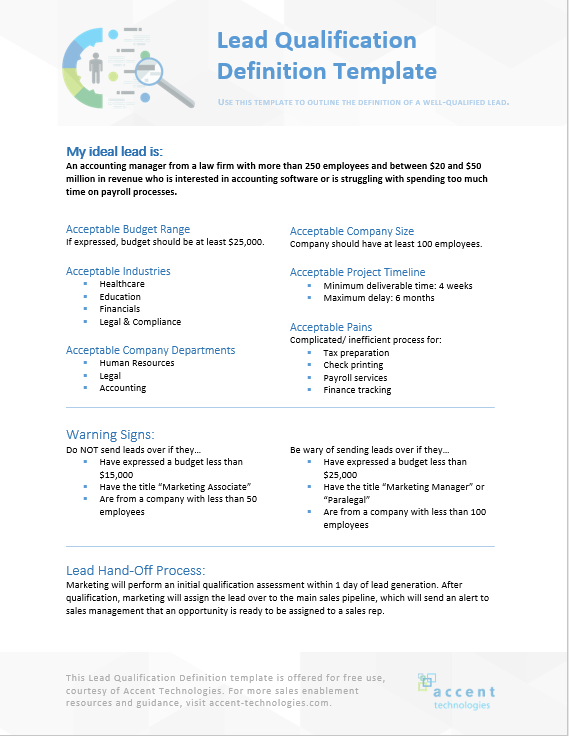AI Lead Qualification Made Simple

The process of lead qualification, a crucial step in the sales funnel, has traditionally been a time-consuming and labor-intensive task. However, with the advent of artificial intelligence (AI), this process has become more efficient, streamlined, and effective. AI lead qualification is revolutionizing the way businesses approach sales, allowing them to focus on high-quality leads that are more likely to convert into customers. In this article, we will delve into the world of AI lead qualification, exploring its benefits, how it works, and what the future holds for this technology.
The Challenges of Traditional Lead Qualification
Traditional lead qualification methods rely heavily on human intuition and manual data analysis. Sales teams spend countless hours sifting through leads, attempting to identify those that are most likely to result in a sale. This process is not only time-consuming but also prone to errors, as Sales Representatives (SRs) may miss critical information or misjudge a lead’s potential. Furthermore, as the volume of leads increases, so does the complexity of managing and prioritizing them, exacerbating the challenges faced by sales teams.
Introduction to AI Lead Qualification
AI lead qualification leverages machine learning algorithms to analyze vast amounts of data, including lead behavior, demographic information, and interaction history, to predict the likelihood of a lead converting into a customer. This technology can process and analyze data at speeds and scales that human sales teams cannot match, providing a more accurate and efficient lead qualification process. By automating the initial stages of lead qualification, AI enables sales teams to focus on what matters most: engaging with high-quality leads and closing deals.
How AI Lead Qualification Works
The process of AI lead qualification involves several key steps:
- Data Collection: Gathering data from various sources, including CRM systems, marketing automation platforms, and social media. This data is then integrated into a centralized platform for analysis.
- Data Analysis: AI algorithms analyze the collected data to identify patterns, behaviors, and other indicators that suggest a lead’s readiness to buy.
- Lead Scoring: Based on the analysis, each lead is assigned a score that reflects its potential. This score can be influenced by factors such as the lead’s engagement with marketing content, their job title, company size, and more.
- Qualification: Leads are then qualified or disqualified based on their score, with high-scoring leads being deemed as high-quality and worthy of pursuit by the sales team.
- Continuous Learning: The AI system continuously learns from new data and the outcomes of previous lead qualifications, refining its algorithms to improve accuracy over time.
Benefits of AI Lead Qualification
The integration of AI into lead qualification processes offers numerous benefits to businesses:
- Efficiency: AI can analyze vast amounts of data much faster than human sales teams, significantly reducing the time spent on lead qualification.
- Accuracy: By eliminating human bias and leveraging data-driven insights, AI lead qualification can be more accurate, identifying high-quality leads that might have been overlooked.
- Scalability: As the volume of leads increases, AI systems can handle the surge without a decrease in performance, making them ideal for large-scale sales operations.
- Personalization: AI can help in personalizing the sales approach by providing insights into the lead’s preferences and behaviors, leading to more effective engagement strategies.
Implementing AI Lead Qualification
While the concept of AI lead qualification is compelling, its implementation requires careful consideration and planning:
- Data Quality: The effectiveness of AI lead qualification is heavily dependent on the quality of the data available. Ensuring that data is accurate, complete, and up-to-date is crucial.
- Algorithm Training: The AI algorithms must be trained on a comprehensive dataset that includes both qualified and disqualified leads to learn from patterns and behaviors.
- Integration with Existing Systems: Seamless integration with CRM systems, marketing automation tools, and other sales technology is necessary to ensure that AI-driven insights are actionable.
- Continuous Monitoring and Adjustment: The performance of AI lead qualification systems should be continuously monitored, with adjustments made as needed to maintain or improve accuracy.
The Future of AI Lead Qualification
As AI technology continues to evolve, we can expect AI lead qualification to become even more sophisticated. Advances in areas such as natural language processing, predictive analytics, and machine learning will enable AI systems to provide deeper insights into lead behavior and preferences. The integration of AI with other emerging technologies, such as augmented reality and the Internet of Things (IoT), could further revolutionize the sales process, offering new and innovative ways to engage with potential customers.
Conclusion
AI lead qualification is not just a trend in sales technology; it is a significant shift in how businesses approach the sales funnel. By leveraging the power of AI, companies can streamline their lead qualification processes, enhance accuracy, and ultimately drive more sales. As we move forward, embracing the potential of AI lead qualification will be key to staying competitive in a rapidly evolving market landscape.
What is AI lead qualification, and how does it work?
+AI lead qualification uses machine learning algorithms to analyze data and predict the likelihood of a lead converting into a customer. It works by collecting data, analyzing it to identify patterns and behaviors, scoring leads based on their potential, and then qualifying or disqualifying them accordingly.
What are the benefits of using AI for lead qualification?
+The benefits include increased efficiency, improved accuracy, scalability, and the ability to personalize the sales approach. AI can analyze vast amounts of data quickly, eliminate human bias, and handle large volumes of leads without a decrease in performance.
How do I implement AI lead qualification in my business?
+Implementation involves ensuring high-quality data, training AI algorithms on comprehensive datasets, integrating the system with existing sales technology, and continuously monitoring and adjusting the system’s performance. It’s also crucial to have a clear understanding of your business needs and how AI lead qualification can meet those needs.